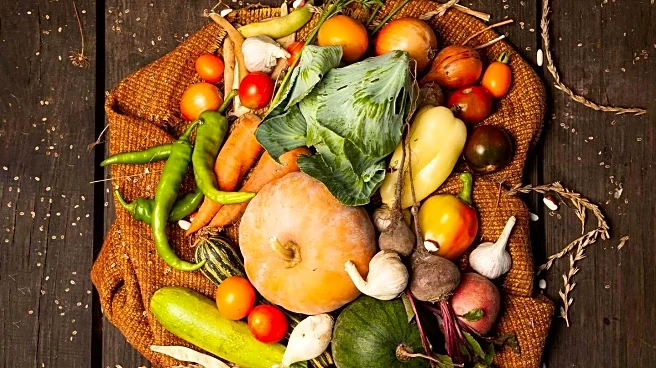What is the story about?
What's Happening?
A Washington Post article explores how global culinary traditions can help reduce food waste. It highlights dishes like Japanese okonomiyaki and Korean jeon, which are adaptable to various ingredients, allowing for the use of leftovers. The article emphasizes the importance of zero-waste cooking, noting that many cultures have historically developed recipes to utilize surplus ingredients. The upcoming International Day of Awareness of Food Loss and Waste aims to draw attention to the environmental impact of food waste.
Why It's Important?
The focus on reducing food waste through culinary traditions addresses a significant environmental issue. Food waste contributes to climate change and resource depletion, making it crucial to find sustainable solutions. By adopting zero-waste cooking practices, individuals can minimize their environmental footprint and save money. The article encourages a shift in consumer behavior towards more sustainable cooking and eating habits, potentially leading to broader societal changes in how food is valued and consumed.
Beyond the Headlines
The exploration of global culinary traditions highlights the cultural dimensions of sustainability, showcasing how diverse practices can contribute to environmental solutions. It also raises ethical considerations about food consumption and the responsibility of individuals and communities to reduce waste.















